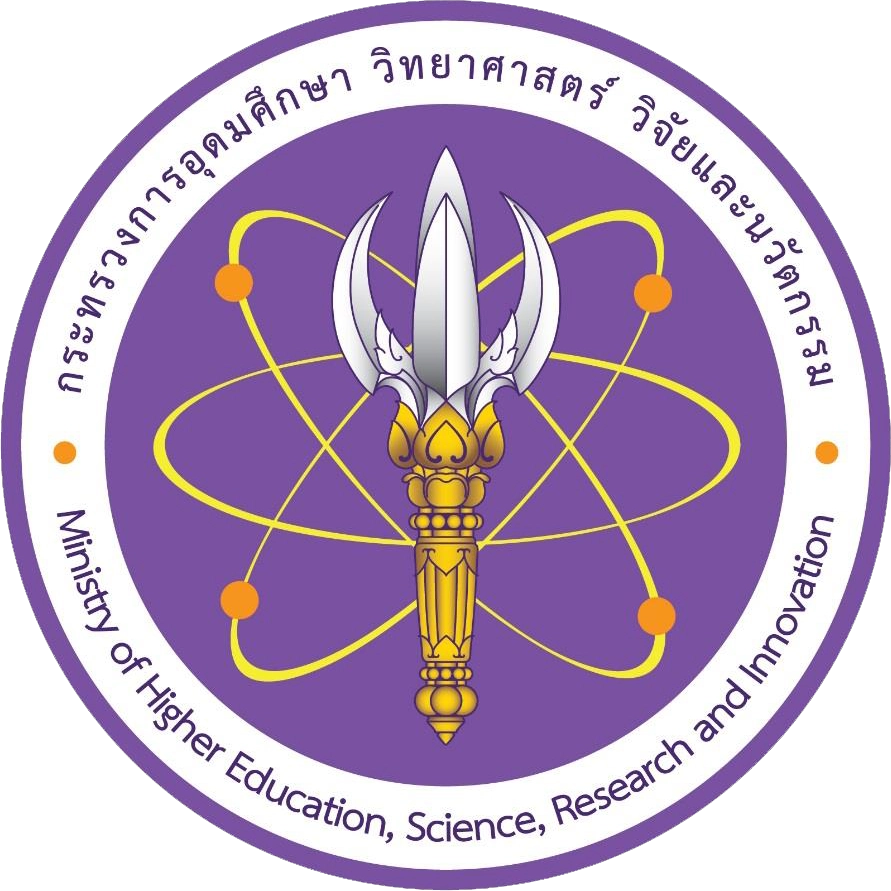ชื่อโครงการ
โครงข่ายท้องถิ่นกับการเรียนรู้เมืองเชียงใหม่คำสำคัญ
กลไกความร่วมมือของชุมชนและภาคประชาสังคม,เรียนรู้จากชีวิตประจำวันของคนตัวเล็กในเมือง,สถาปัตยกรรมและเมือง,คนและชุมชน,พื้นที่กลาง,ยุทธศาสตร์การขับเคลื่อนเมืองบทคัดย่อ
โครงการวิจัยชุดนี้มีชื่อว่า “โครงข่ายท้องถิ่นกับการเรียนรู้เมืองเชียงใหม่” อยู่ภายใต้กรอบวิจัย เมืองแห่งการเรียนรู้ โดยมีพื้นที่เขตเทศบาลเมืองเชียงใหม่ เป็น พื้นที่เป้าหมาย โดยทีมวิจัยเชื่อว่า “เมือง” เกิดขึ้นจากความสัมพันธ์ของผู้คนในสังคมที่เกี่ยวโยงโดยตรงกับการใช้ชีวิตและพื้นที่ในชีวิตประจำวัน โครงการวิจัยนี้มุ่งในการสร้างให้เกิดการสร้าง “นิเวศของการเรียนรู้ตลอดชีวิต” ถูกออกแบบให้มีโครงการหลักทำหน้าที่ในการวางกรอบคิด ทิศทางการทำงาน และมุ่งเน้นในการสร้างพื้นที่กลางเพื่อการเรียนรู้ทั้งด้านกายภาพและด้านดิจิทัลโดยทำงานเชื่อมโยงกับโครงการย่อยอีก 3 โครงการ คือ โครงการย่อยที่ 1 “การสร้างกลไกความร่วมมือและการขับเคลื่อนเมืองแห่งการเรียนรู้” เน้นการค้นหาและพัฒนากลไกความร่วมมือระหว่างภาคส่วนต่าง ๆ ในการขับเคลื่อนเมืองแห่งการเรียนรู้สู่ความยั่งยืน ผ่านการถอดบทเรียน จุดแข็ง และจุดอ่อนการทำงานแบบข้ามภาคส่วนของหน่วยงานรัฐท้องถิ่น หน่วยงานการศึกษาและการขับเคลื่อนประชาคมเมืองเชียงใหม่เพื่อพัฒนาการสร้างกลไกใหม่ๆ ในการขับเคลื่อนการเรียนรู้; โครงการย่อย2 “การเรียนรู้วัฒนธรรมพื้นถิ่นเมืองผ่านผู้คนและชุมชนทางสังคม” มุ่งเน้นการค้นหาและสร้างเสริมความมั่นคงของชุมชนทางสังคมในเมืองโดยพิจารณาจากการเปลี่ยนแปลงของพื้นที่กายภาพต่างๆ ของย่านและของกลุ่มคนเพื่อใช้เป็นบทเรียนเมืองเพื่อการเรียนรู้; และ โครงการย่อย3 “การศึกษาท้องถิ่น: หลากมิติแห่งการเรียนรู้เมืองเชียงใหม่” มุ่งเน้นการค้นหาวิธีการเรียนรู้ที่หลากหลาย ผ่านรูปแบบกิจกรรมการเรียนรู้ของเยาวชนรุ่นใหม่ ผลลัพธ์ที่เกิดขึ้นจากการเรียนรู้ยังสามารถส่งต่อโอกาสต่อยอดแนวคิดใหม่ๆ สำหรับภาคธุรกิจ หน่วยงานภาครัฐ ภาคประชาสังคม เกิดการยึดโยงและขยายเครือข่ายการเรียนรู้และการสนับสนุนการขับเคลื่อนเมืองแห่งการเรียนรู้ กลไกการทำงานของโครงการวิจัยชุดนี้ประกอบไปด้วย (1) เราระบุและค้นหา “ทรัพยากรในท้องถิ่น” (2) คัดสรรและเรียบเรียง สร้างให้เกิด “ประเด็นในการเรียนรู้” (3) ทำงานร่วมกับชุมชนเพื่อสร้างสรรค์ “บทเรียนท้องถิ่นเพื่อการเรียนรู้” และ (4) เชื่อมโยงเข้ากับวิธีการและช่องทางการสื่อสารใหม่ๆ กระบวนการทั้งหมดถูกนำมาใช้ในพื้นที่ชุมชนเป้าหมายหลัก 3 ชุมชน คือ ชุมชนควรค่าม้าสามัคคี ชุมชนป่าห้า และ ชุมชนช้างม่อย กิจกรรมต่างๆ สำหรับการสำรวจชุมชน ออกแบบบทเรียนเมือง และการประชุมเชิงปฏิบัติการตลอดระยะเวลาการดำเนินงานเกิดขึ้นอย่างมากมายและหลากหลาย รวมถึงความพยายามในการสร้างเครือข่ายที่เชื่อมโยงระหว่าง ทีมวิจัย ภาคประชาสังคม และภาครัฐ นอกจากนั้นการลงทำงานกับชุมชนเพื่อผลักดันให้เกิดชุมชนแห่งการเรียนรู้ โครงการวิจัยนำเสนอความเป็นไปได้ทางการเชื่อมโยงพื้นที่ชุมชนเป้าหมายทั้ง 3 เข้าด้วยกัน โดยมีแกนของความเชื่อมโยงที่สำคัญที่สุดคือ “เครือข่ายชุมชนท้องถิ่น” ซึ่งทีมวิจัยพบว่าเครือข่ายชุมชนนี้มักจะเป็นวงเล็ก กระจายแต่เชื่อมโยง และไม่เป็นทางการ ที่สามารถปรับเปลี่ยนวิธีการทำงานได้หลากหลายรูปแบบ คล่องตัวและเข้าสู่ประเด็นเป้าหมายได้กระชับและไว ลักษณะของโครงสร้างการทำงานของ โครงข่ายท้องถิ่น เป็นแบบหลวมๆ ยึดโยงกันด้วยความสัมพันธ์แบบเครือญาติ ความร่วมมือที่เกิดขึ้นจาก โครงข่ายท้องถิ่น ที่เข้มแข็งจะทำให้ชุมชนเข้มแข็ง และเมื่อโครงข่ายท้องถิ่นที่พร้อมในการเรียนรู้ ก็จะเป็นการเปิดโอกาสให้เกิดการสำรวจ วิเคราะห์ และการเรียนรู้ในระดับต่างๆ ทั้งเรียนรู้ตัวเอง เรียนรู้คนอื่นๆ แล้วนำมาปรับปรุง และให้คนอื่นมาเรียนรู้ โครงการวิจัยเสนอแนวคิดการสร้างให้เกิดการเชื่อมโยงของพื้นที่ทั้งสามโดยแบ่งได้ออกเป็น 3 ทิศทาง คือ 1) การเชื่อมโยงทางลักษณะทางกายภาพของเมือง 2) การเชื่อมโยงทางระบบนิเวศและสิ่งแวดล้อม และ 3) การเชื่อมโยงทางเศรษฐกิจชุมชน เมื่อโครงการ “โครงข่ายท้องถิ่นกับการเรียนรู้เมืองเชียงใหม่” เสร็จสิ้นลง โครงการมีภาพในจินตนาการว่า (Vision) พื้นที่ในเมืองจะกลายเป็นเสมือนกับแหล่งการเรียนรู้ทั้งในรูปแบบของ พื้นที่เรียนรู้ในเชิงประวัติศาสตร์ พื้นที่เรียนรู้เชิงสร้างสรรค์ หรือ พื้นที่เรียนรู้เชิงวัฒนธรรมร่วมสมัย มีการจัดระบบข้อมูลเมืองที่สามารถเข้าถึงได้อย่างเท่าเทียมและกว้างขวาง
Title
Chiang Mai Local Network of Learning CityKeywords
Collaborating communities and civil society,Learning from people and their everyday life,Architecture and the City,people and community,sharing and collaborating space,strategic city visionAbstract
This research project is titled “Chiang Mai Local Network of Learning City”, which has Chiang Mai Municipality area as the target research area. Our notion of the city comes from the relationship of people, their daily lives and spaces. This research project aims to create a lifelong learning ecosystem. The research framework is designed to have a core project functioning to direct and facilitate a central learning space for both physical and digital learning in collaboration with three sub-projects. The sub-project 1 titled Cross Sectoral Collaboration Mechanism and Strategic Driving Process for Learning City focuses on identifying and developing learning mechanisms for the different sectors. SWOT analysis has been introduced to check-up and examine strength and weaknesses of cross-sectoral networks – i.e., communities, civil societies, and local government agencies. The sub-project 2 titled Learning Urban Vernacular Culture through People and Their Social Community aims to discover and identify the physical characteristics and the dynamic relations of urban social communities and uses them as a learning city lesson. Lastly, the sub-project 3 titled Local Study: Learning Multi-layer Chiang Mai City which focuses on searching for a variety of learning methods, through learning activities for the new generation of youth. The outcomes of these three sub-projects offer new ideas, alternative learning methods, and importantly a possibility for others to join such a learning network, and surely become supporting the learning city movement. The learning mechanism of this research project consists of (1) identifying and extracting what we regarded as “local community assets”, (2) selecting and organizing these local community assets to create “learning issues”, (3) collaborating with the local community to create “local learning city lessons”, and (4) providing them with various learning methods and channels of communication. Three local communities have been selected as the focusing targets to implement, namely Kua-Kham-Ma Samakkee Community, Pa-Ha Community, and Chang-Moi Community. Many learning activities and workshops – both online and onsite – have been used to highlight the local learning city lessons throughout the research period. At the same time we also aim to build up the local networks among communities, research team, civil societies, government agencies, and importantly public sectors in the area. Throughout the research period, we believe that there is a possibility of linking the three target local communities together by having the notion of “local community network” as the integrated core idea. We found that there are many local community networks. They usually operate in small but functional circles, loosely connected, and flexible working methods, which allows them to communicate and connect to each other. These local community networks based on kinship relations in general, therefore it is not surprising that the local networks can become the key to reflect people’s relationship in the community as well. To strengthen such the network, this can also be seen as to empower of the local community. By elaborating and highlighting the local networks in three main target communities, this research proposes three possible ways to connect and learn from them, which are 1) the physical linkage based on built-environment of communities, 2) the ecological and environmental linkage based on the natural resources in the communities, and 3) the local economy linkage based on the community festival which could create the income for the community. When the research project titled “Chiang Mai Local Network of Learning City” is completed, we have a vision that the city, especially local communities could become like learning resources and can be produced in various city learning lessons, such as historical learning lessons, creative learning lessons, or traditional or contemporary cultural lessons. With a proper organization of city data resources, easy and equally accessible, “Learning City” is not just a research framework but rather become the effective city driving mechanism.


